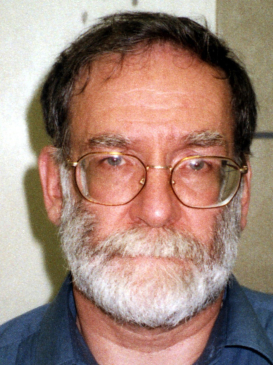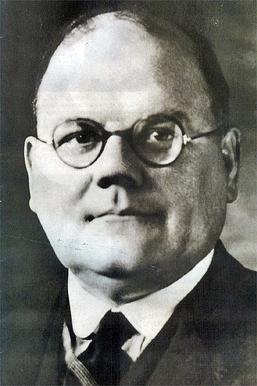Related Research Articles

Harold Frederick Shipman, Jr., known to acquaintances as Fred Shipman, was an English general practitioner and serial killer. He is considered to be one of the most prolific serial killers in modern history, with an estimated 250 victims. On 31 January 2000, Shipman was found guilty of murdering fifteen patients under his care. He was sentenced to life imprisonment with a whole life order. Shipman died by suicide by hanging himself in his cell at HM Prison Wakefield, West Yorkshire, on 13 January 2004, aged 57.

John Bodkin Adams was an Irish-born British general practitioner, convicted fraudster, and suspected serial killer. Between 1946 and 1956, 163 of his patients died while in comas, which was deemed to be worthy of investigation. In addition, 132 out of 310 patients had left Adams money or items in their wills.
Culpable homicide is a categorisation of certain offences in various jurisdictions within the Commonwealth of Nations which involves the illegal killing of a person either with or without an intention to kill depending upon how a particular jurisdiction has defined the offence. Unusually for those legal systems which have originated or been influenced during rule by the United Kingdom, the name of the offence associates with Scots law rather than English law.

Commander K. M. Nanavati vs. State of Maharashtra was a 1959 Indian court case where Kawas Manekshaw Nanavati, a Naval Commander, was tried for the murder of Prem Ahuja, his wife's lover. Commander Nanavati, accused under section 302, was initially declared not guilty by a jury, but the verdict was dismissed by the Bombay High Court and the case was retried as a bench trial. The case is often erroneously believed to be the last jury trial in India, but there were several trials afterwards that used juries, some well into the 1960s. Nanavati was finally pardoned by Vijayalakshmi Pandit, newly appointed Governor of Maharashtra and sister of Prime Minister Jawaharlal Nehru.

Michael Joseph Swango is an American serial killer and licensed physician who is estimated to have been involved in as many as 60 fatal poisonings of patients and colleagues, although he admitted to only causing four deaths. He was sentenced in 2000 to three consecutive life terms without the possibility of parole and is serving his sentence at ADX Florence at his own request.
Manslaughter is a common law legal term for homicide considered by law as less culpable than murder. The distinction between murder and manslaughter is sometimes said to have first been made by the ancient Athenian lawmaker Draco in the 7th century BC.
Gertrude "Bobby" Hullett, a resident of Eastbourne, East Sussex, England, was a patient of Dr John Bodkin Adams, who was indicted for her murder but not brought to trial for it. Adams was tried in 1957 for the murder of Edith Alice Morrell, and the prosecution intended to proceed with the Hullett indictment as a second prosecution that could follow the Morrell case in certain circumstances, although it did not bring the case to trial following the verdict in the Morrell trial.
Choo Han Teck is a Singaporean judge of the Supreme Court. He was formerly a lawyer before his appointment to the court as a judge. It was revealed in 2021 that Choo was one of the defence lawyers representing Adrian Lim, the infamous Toa Payoh child killer who was executed in 1988 for charges of murdering a girl and boy as ritual sacrifices. In 1994, Choo also defended Phua Soy Boon, a jobless Singaporean who was hanged in 1995 for killing a moneylender.

The World's End Murders is the colloquial name given to the murder of two girls, Christine Eadie, 17, and Helen Scott, 17, in Edinburgh, in October 1977. The case is so named because both victims were last seen alive leaving The World's End pub in Edinburgh's Old Town. The only person to stand trial accused of the murders, Angus Sinclair, was acquitted in 2007 in controversial circumstances. Following the amendment of the law of double jeopardy, which would have prevented his retrial, Sinclair was retried in October 2014 and convicted of both murders on 14 November 2014. He was sentenced to life imprisonment with a minimum term of 37 years, the longest sentence by a Scottish court, meaning he would have been 106 years old when he was eligible for a potential release on parole. He died at HM Prison Glenochil aged 73 on 11 March 2019. Coincidentally, he died on the same day the BBC's Crimewatch Roadshow programme profiled the murders.
Alfred Trzebinski was an SS-physician at the Auschwitz, Majdanek and Neuengamme concentration camps in Nazi Germany. He was sentenced to death and executed for his involvement in war crimes committed at the Neuengamme subcamps.
Reeva Rebecca Steenkamp was a South African model and paralegal. She modelled for FHM magazine and was the first face of Avon cosmetics in South Africa. Steenkamp once worked as the live roaming presenter for FashionTV in South Africa and starred in television advertisements for Toyota Land Cruiser, Clover "The One", Redds and Aldor Pin Pop. She was a celebrity contestant on the BBC Lifestyle show Baking Made Easy in 2012 and on Tropika Island of Treasure season 5 which aired on SABC 3 in February 2013.
On August 20, 2016, a mass killing occurred in Citronelle, Alabama, resulting in the deaths of five people, including a woman who was five months pregnant. They were killed in the early morning in a private residence in a rural area west of the city. It was owned by a brother of Laneta Lester, who had sought refuge there. She and her brother's infant were abducted and taken to Leakesville, Mississippi, by her estranged boyfriend, Derrick Dearman. He released her that day. Lester returned with the infant to Citronelle. She notified police of the killings. Investigators described this mass killing as the worst in Mobile County's history. The house burned down a couple of weeks after the crime.
The Rzeszowski family homicides occurred on 14 August 2011 in Saint Helier, Jersey in the Channel Islands. Damian Rzeszowski stabbed to death six people including four members of his family. He was found guilty of manslaughter with diminished responsibility and sentenced to 30 years in prison for each victim. He died in a suspected suicide in HMP Full Sutton on 31 March 2018.
Chan Seng Onn is a Singaporean judge. Formerly a prosecutor, Chan has served as a High Court judge since 2 July 2007.

Carla Jan Walker was an American homicide victim abducted from a bowling alley parking lot in Fort Worth, Texas on February 17, 1974. Her body was found three days later in a drainage ditch just 30 minutes south of Fort Worth.

On the morning of 26 July 2016, a Burmese maid Piang Ngaih Don was found tortured, starved and beaten to death in a flat in Bishan, Singapore.

The Orchard Towers double murders was the case of two deaths occurring at Balmoral Park, Singapore, before the victims' bodies were discovered at a carpark in Orchard Towers, thus the title of the case. The victims were 46-year-old Kho Nai Guan and Kho's 29-year-old Chinese girlfriend Lan Ya Ming, and they were both murdered by Kho's British employer Michael McCrea. McCrea was assisted by his girlfriend Audrey Ong Pei Ling in disposing of the bodies before they both fled Singapore to Australia, where they were caught.
On 13 March 1997, at one of the HDB flats in King George's Avenue, Kallang, 53-year-old Sivapackiam Veerappan Rengasamy was discovered dead in her bedroom by her son. Sivapackiam was found to have been stabbed three times in the neck and she died from the wounds. During police investigations, Sivapackiam's tenant Gerardine Andrew, a 36-year-old prostitute, told police that on the day of the murder, she returned to the flat and saw three people attacking her landlady and robbing her, and they threatened her to leave after briefly holding her hostage.

Life imprisonment is a legal penalty in Singapore. This sentence is applicable for more than forty offences under Singapore law, such as culpable homicide not amounting to murder, attempted murder, kidnapping by ransom, criminal breach of trust by a public servant, voluntarily causing grievous hurt with dangerous weapons, and trafficking of firearms, in addition to caning or a fine for certain offences that warrant life imprisonment.
References
- 1 2 3 4 Lewis Machipisa (11 March 1999). "HEALTH-ZIMBABWE: Doctor Sentenced For Culpable Homicide". Inter Press Service.
- 1 2 3 4 "Gone are the days when hospitals were a place for recovery". NewsDay . 31 March 2012.
- 1 2 3 4 "Doctor appeals to GMC over deaths of Zimbabwe children". The Scotsman . 22 November 2002.
- 1 2 3 4 Suitable Kajau (19 June 2014). "Morality should drive the Medical Profession". Bulawayo24.
- 1 2 "Doctor accused over baby's death". BBC Online . 22 November 2002.
- 1 2 3 Eddie Zvinonzwa (18 February 2013). "When doctors 'get licensed to kill'". Daily News LIVE .
- 1 2 3 Angus Shaw (11 January 1995). "'Race-trial' doctor guilty of homicide". The Independent .
- ↑ Tsitsi Matope (28 November 2002). "Zimbabwe: Mcgown struck off". AllAfrica.com.